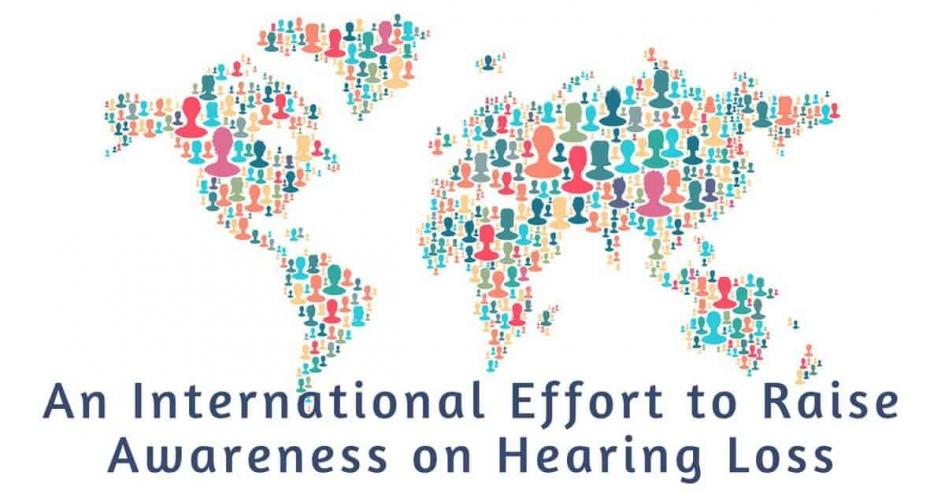
An International Effort to Raise Awareness on Hearing Loss
It’s a health situation nearing epidemic levels, with 13% of all Britons reporting some degree of hearing loss. That number climbs dramatically to 40% when looking at the over 50 population. But it’s not just a trend singular to the UK. There are global concerns over the rise of hearing loss and influential organizations are calling for a worldwide awareness and treatment campaign.
In a recent article published in The Lancet, a team of experts at Duke University School of Medicine and the Duke Global Health Institute call for more access to screenings, treatments and preventative measures so combat hearing loss. While this research was based in the United States, their scope of study was much larger.
A cause for global concern
Worldwide, hearing loss continues to be one of the most common health concerns. The statistics point to an upward trend. While twenty-five years ago, the percentage of people with hearing loss was at 14%, today that number is much higher at around 18%. When you look at actual numbers, their immensity is astounding: recent data estimates that half a billion people on the planet have moderate to severe hearing loss.
Our ears are delicate and irreplaceable systems. In many cases, once hearing loss presents as a condition, there is no way to reverse the damage already done. In another US study done with a global lens, a report out of the National Academies of Sciences, Engineering, and Medicine found that hearing loss is the fifth leading cause of disability around the world.
Acting now for a healthier future
It’s a sombre and sobering reality. There are certain factors that can’t be ignored and taking preventative measures could realise a healthier hearing future. It’s not only the large numbers of aging individuals that are responsible for the worldwide increase in hearing loss, behavioural factors are also at play. Our society is getting louder. Forecasts predicting future increased hearing loss trends named the increasingly ubiquitous use of personal devices and earbuds as being significantly to blame.
The hazards of careless volume levels when wearing headphones or earbuds are so present that the World Health Organization warns that 1.1 billion teens and young adults are at risk of developing hearing loss strictly because of “personal audio devices.”
The harmful implications of hearing loss
Hearing loss does more than disrupt the auditory system. Its real impact is on the ways it impedes communication and connection. People with hearing loss tend to have higher instances of depression as a result of increased isolation. While hearing aids have been proven to alleviate those symptoms, it’s only after a reliable diagnosis and a clear treatment plan that intervention can even begin. Often, hearing loss goes unacknowledged far longer than need be.
Mediations and treatment recommendations
Thankfully, the report from Duke University School of Medicine and the Duke Global Health Institute also came with a strong set of recommendations directed at the global health community. They call for easier diagnostic paths, such as using smartphones for hearing assessments, assisted-hearing devices and telemedicine. In low- and middle-income countries, researchers are advocating for increasing access to immunizations against diseases that contribute to hearing loss. And, with an eye towards the healthy hearing of future generations, they also recommended that we work together to educate our communities on the damagingly loud sounds from headphones and other sources, particularly in those middle- and high-income countries in which this has proven to be a serious consideration.
What you can do right now
While we work together patiently to address the tidal wave of increased hearing loss in our world, there are a number of steps you can take today to mitigate its damage. Step one is to just turn down the volume. Take note of the loudness of your personal devices. If you think it’s too loud, it likely is. Try to make a habit of notching it a bit lower than you’d actually prefer and see if your ears can adjust to this less aggressive sound.
If you or a loved one is showing early signs of hearing loss, make it your priority to schedule a hearing exam with us at House of Hearing. While it might seem like a chore that can wait another day, early intervention is key to long term hearing and emotional health when it comes to hearing loss.
Our Clinics
All House of Hearing clinics are in town centre locations and accessible to public transport and parking. Home visits also available if mobility is an issue.


.png)
.png)
.png)

.png)
